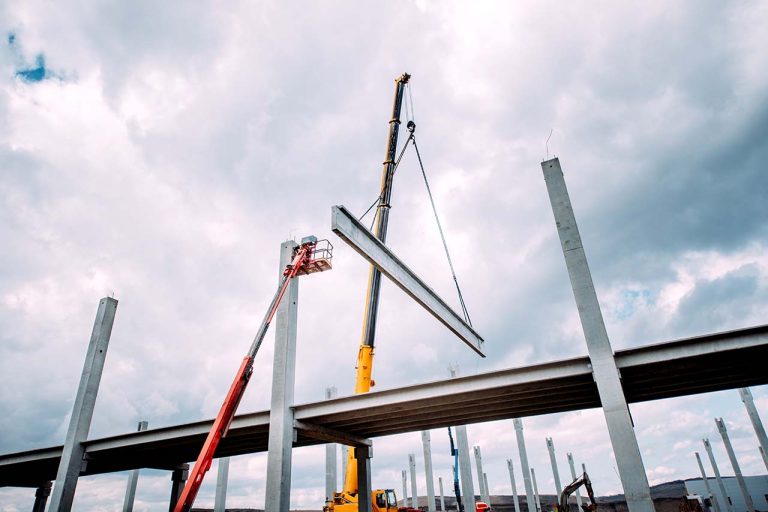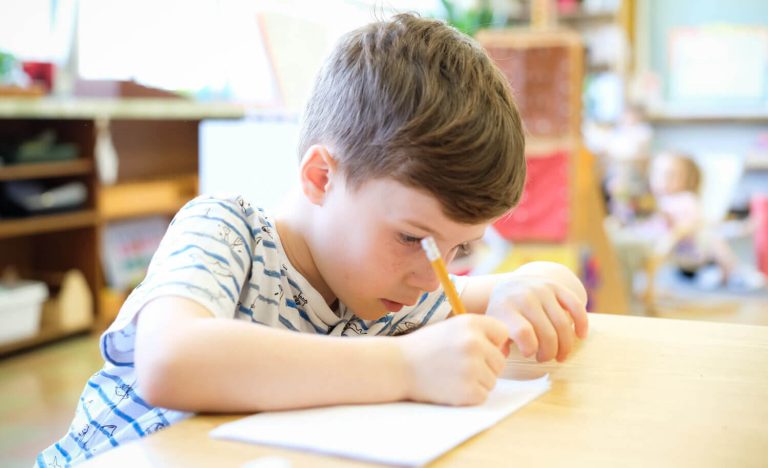Arabic Immersion is an immersive educational approach that introduces young learners to the Arabic language through continuous exposure and active engagement. At ILIM School, the Arabic Immersion program provides children from preschool through middle school with an enriching experience that goes far beyond language acquisition. By integrating Arabic into daily school life, students not only learn the language but also connect with the rich history, culture, and traditions associated with the Arabic-speaking world. This comprehensive approach fosters bilingualism and cultural understanding while preparing students for a globalized future. The Arabic Immersion program at ILIM School emphasizes the practical application of Arabic, enabling children to speak, read, and write in Arabic with fluency, confidence, and cultural awareness. Through immersive teaching methods and an engaging curriculum, ILIM School’s Arabic Immersion program provides students with a solid foundation for lifelong learning and success.
The Importance of Arabic Immersion
Arabic is one of the most widely spoken languages in the world, with millions of people using it in their daily lives across the Middle East, North Africa, and beyond. By enrolling in ILIM School’s Arabic Immersion program, children gain a linguistic advantage that will serve them well throughout their lives. Early exposure to Arabic allows children to learn the language in its cultural context, helping them develop fluency and comprehension skills at an age when their minds are particularly receptive to new languages. Arabic Immersion is not just about learning vocabulary and grammar; it’s about becoming fully immersed in the language and its uses in real-life situations.
At ILIM School, Arabic Immersion begins in preschool, where children are introduced to basic Arabic vocabulary and phrases through songs, games, and storytelling. As children progress through the school, the Arabic Immersion curriculum becomes more structured, incorporating reading, writing, and conversation skills in both formal and informal settings. This gradual and consistent approach to learning ensures that children build a strong foundation in Arabic, while also gaining an understanding of the linguistic, historical, and cultural significance of the language.
Language and Cognitive Development Through Arabic Immersion
Studies show that bilingual children enjoy cognitive advantages, including enhanced problem-solving skills, improved memory, and greater creativity. By participating in ILIM School’s Arabic Immersion program, students are not only learning a new language but are also developing essential cognitive skills that will benefit them in other areas of study. Learning Arabic at an early age has been shown to increase children’s ability to think critically, adapt to new situations, and retain information more effectively. The Arabic Immersion program promotes these cognitive benefits by immersing students in the language and encouraging them to think in Arabic throughout their daily activities.
Through the process of Arabic Immersion, students become accustomed to switching between languages, which improves their flexibility in thinking and ability to multitask. Research has also shown that bilingual children tend to perform better academically, particularly in areas like math and science. ILIM School’s Arabic Immersion program provides students with the opportunity to tap into these cognitive advantages while also learning a valuable skill that can serve them in various academic and professional contexts.
Cultural Awareness and Global Citizenship
Arabic Immersion at ILIM School is not just about language acquisition; it’s also about fostering a deeper understanding of the diverse cultures and traditions that Arabic-speaking communities represent. As students learn Arabic, they are introduced to the rich history, art, literature, music, and customs of the Arab world. This cultural education promotes empathy, global citizenship, and a broader worldview, which are essential skills in today’s interconnected world.
ILIM School goes beyond teaching Arabic as a language; they make it an integral part of the student’s cultural experience. Students participate in activities like celebrating Arabic festivals, learning traditional dances, exploring Arab literature, and understanding the geographical and historical significance of the Arabic-speaking world. These experiences help students appreciate the diverse cultures within the Arab community and the broader impact of Arabic-speaking countries on the world stage. By integrating cultural learning into the Arabic Immersion program, ILIM School ensures that students not only learn the language but also develop respect for different cultures and perspectives.
Preparing for Future Success
In an increasingly interconnected world, proficiency in multiple languages, including Arabic, is an invaluable asset. Arabic is the official language of over 20 countries, and its importance continues to grow in areas like international relations, business, and diplomacy. Students who graduate from ILIM School’s Arabic Immersion program are not only fluent in Arabic but are also equipped with the knowledge and cultural competence necessary for success in global careers.
Being bilingual in Arabic and English opens up a world of professional opportunities, especially in industries like international business, government, translation, education, and media. With Arabic being one of the official languages of the United Nations and other international organizations, mastering the language can offer students a competitive edge in the job market. Furthermore, students who are proficient in Arabic are better positioned to engage with the Arab world on a deeper level, both professionally and personally.
The Supportive Learning Environment of ILIM School
One of the hallmarks of ILIM School’s Arabic Immersion program is the supportive and nurturing environment it offers. Teachers are highly skilled in both Arabic and immersion-based teaching methods, ensuring that each student receives personalized attention and guidance. The immersion model allows students to engage with Arabic in a natural and consistent way, using the language for everyday activities, academic work, and social interaction.
ILIM School’s Arabic Immersion program fosters a sense of community, where students are encouraged to collaborate, speak Arabic confidently, and celebrate their cultural learning together. Whether it’s in the classroom or during extracurricular activities, students are given plenty of opportunities to practice and enhance their Arabic skills in a safe and welcoming environment. The school’s commitment to creating a supportive learning atmosphere ensures that each student has the confidence and tools to succeed in their language learning journey.
Conclusion
ILIM School’s Arabic Immersion program is an outstanding opportunity for students to learn Arabic from preschool through middle school. Through immersive, hands-on learning experiences, students not only acquire language skills but also develop cultural awareness, cognitive flexibility, and global citizenship. The Arabic Immersion approach at ILIM School prepares students for future success, equipping them with the skills they need to thrive in a multilingual, multicultural world. With a strong focus on both language acquisition and cultural understanding, ILIM School ensures that students graduate as fluent Arabic speakers with a deep appreciation for the Arab world and its rich history. Whether your child is just starting their journey or is ready to build on their existing Arabic skills, ILIM School’s Arabic Immersion program provides the perfect foundation for a lifelong passion for language and culture.


















+ There are no comments
Add yours